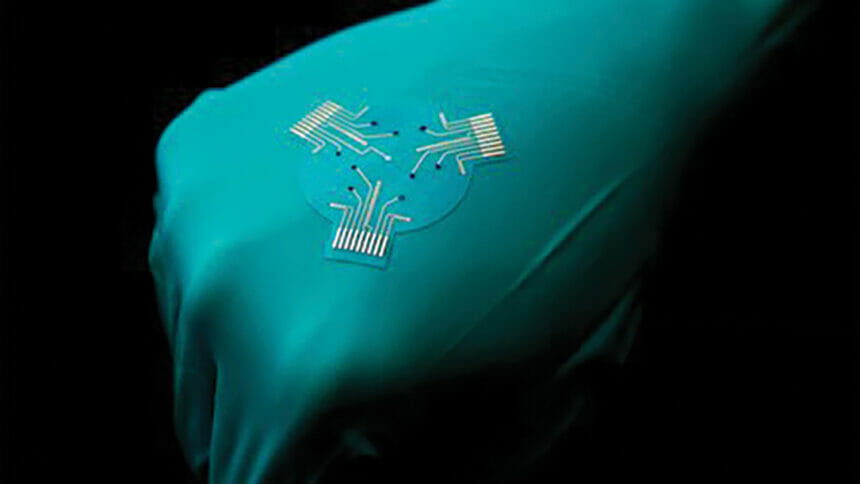
A new smart bandage promises to attack stubborn wounds three ways to improve treatments and speed healing.
The bandage (pictured) is made from a flexible polymer embedded with electronics and medication developed by medical engineers and may offer a less expensive alternative to traditional wound care regimens.
Sensors can monitor for uric acid or lactate and conditions like pH level or temperature that typically indicate inflammation or infection, Caltech researchers explained in the March 24 issue of Science Advances.
The bandage then can respond by wirelessly transmitting data for review by a medical professional; deliver an appropriate antibiotic or other medication directly to the wound site; and apply low-level electrical stimulation to promote new tissue growth.
“We have showed [sic] this proof of concept in small animal models, but down the road, we would like to increase the stability of the device but also to test it on larger chronic wounds because the wound parameters and microenvironment may vary from site to site,” said Wei Gao, an assistant professor of medical engineering who led the NIH-funded project.




